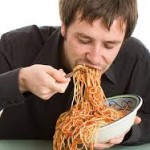Hi all. This is ridiculous. I’ve been back from South America for a month and have not yet returned to blogging. I haven’t even responded to many of the comments and sweet sentiments following the last post. Though I have skimmed through most of the dialogue and debate — with interest.
I have so much to share with you, but it will still have to wait a bit longer.
Having two publishers (one American, one Canadian) means having two editors. They each have very different specialties, and I have to edit the whole manuscript twice, once for each of them. This has been a burden, but also a blessing. They are both really good!! And the book will be that much better due to their excellent skills. That is, if I ever finish the edits and get a final manuscript into them in time for the publication date.
I’ve also received amazing help with some chapters from Matt Robert, a frequent visitor to this blog, and his partner, Cathy. Matt is a SMART facilitator and he knows the addiction field inside-out. Their help has been particularly useful for thinking about the historical context of the addiction field, current debate on many issues, and the implications of my framework for recovery.
Some day soon, it will all be done.
To provide a little content before I publish this, I’m inserting several (slightly revised) paragraphs from the second last chapter — the wrap-up chapter. Here’s a cool way to think about desire, which is, after all, the most prominent word in the title.
Why desire?
The potency of desire — which we can call an emotion or a motivational state — deserves a lot of respect, as does the neural terrain bequeathed to it by evolution. Focus on your mental state when taking a bite of pasta (or  anything else). Notice where your attention is directed while you are eating. While the food is approaching your mouth, en route from your plate, at least some of your attention is likely to be focused on the food. For now, attention is linked with the goal of getting the food where it’s going. And you are feeling desire, at least at some level. Desire and attention converge into one beam. But as soon as the food is in your mouth, your attention goes elsewhere: back to the conversation or to the book you’re reading or the show you’re watching. The amount of attention you pay to the taste of that mouthful is a drop in the bucket compared to the amount you paid to getting it there.
anything else). Notice where your attention is directed while you are eating. While the food is approaching your mouth, en route from your plate, at least some of your attention is likely to be focused on the food. For now, attention is linked with the goal of getting the food where it’s going. And you are feeling desire, at least at some level. Desire and attention converge into one beam. But as soon as the food is in your mouth, your attention goes elsewhere: back to the conversation or to the book you’re reading or the show you’re watching. The amount of attention you pay to the taste of that mouthful is a drop in the bucket compared to the amount you paid to getting it there.
 So, perhaps sadly, maybe ironically, pleasure is a small part of the common experience of eating, even when you’re eating something delicious. Desire and expectancy make up most of the experience: the approach is by far the main act. But this disproportionate relationship makes perfect sense. The evolutionary requirement to focus on pleasure is almost nil. Once the food is in your mouth, it’s a done deal. But if you weren’t deeply engaged, focused, attentive, and determined to achieve the food-in-mouth goal, your survivability would be a poor bet.
So, perhaps sadly, maybe ironically, pleasure is a small part of the common experience of eating, even when you’re eating something delicious. Desire and expectancy make up most of the experience: the approach is by far the main act. But this disproportionate relationship makes perfect sense. The evolutionary requirement to focus on pleasure is almost nil. Once the food is in your mouth, it’s a done deal. But if you weren’t deeply engaged, focused, attentive, and determined to achieve the food-in-mouth goal, your survivability would be a poor bet.
This is of course the same with all other highly motivating goals. Like, for example, getting drugs, booze, cigarettes, money, or sex. I get into the brain mechanics a bit in the book, but the gist is this: the brain regions devoted to desire occupy far more volume and are far more complex than the roughly cubic centimeter responsible for pleasure.
The biology of desire not only helps us understand addiction; it helps us understand why addiction is not a disease. Why it is, rather, an unfortunate outcome of a normal neural mechanism that evolved because it was useful.
I hope that was a tasty tidbit, and I promise more soon!

Leave a Reply